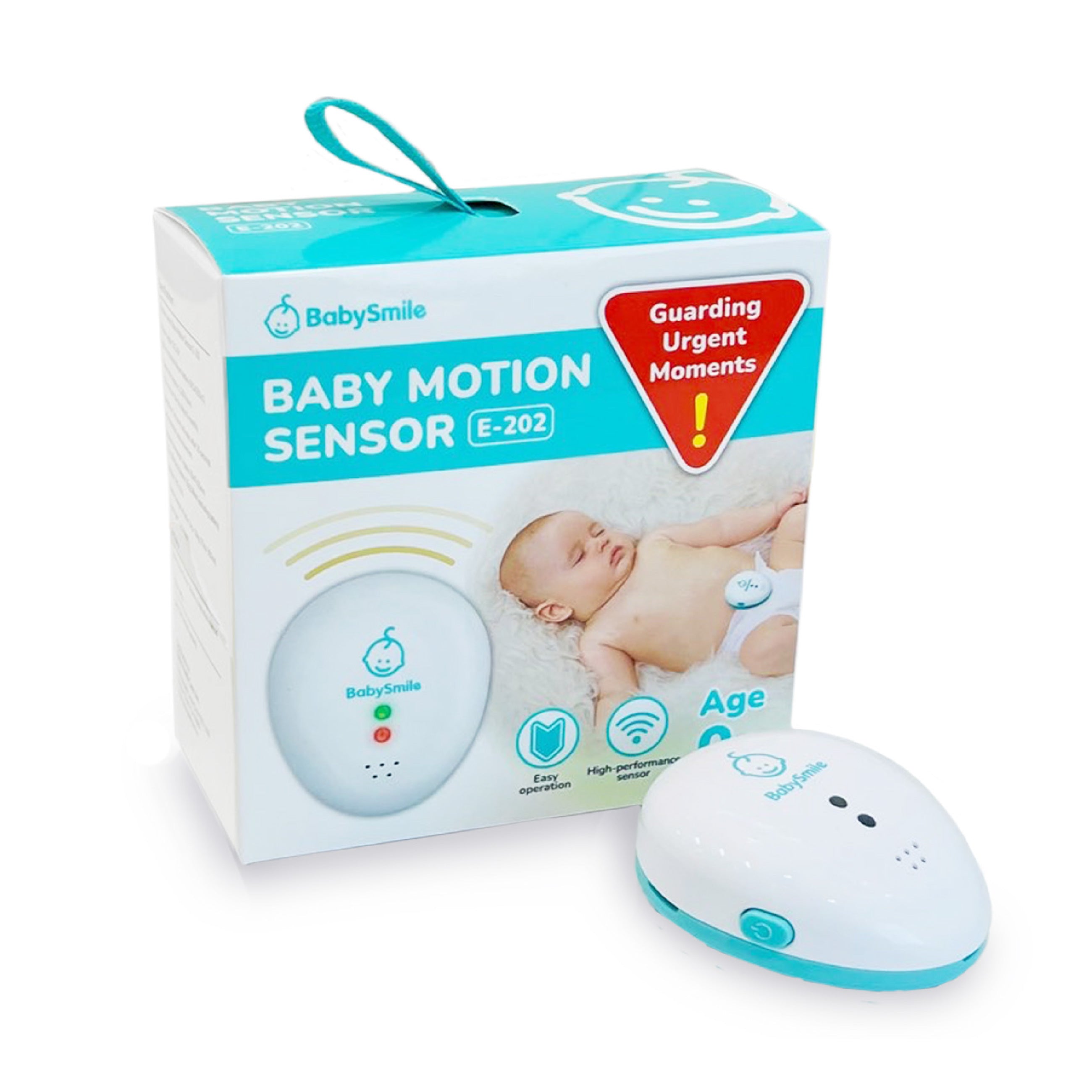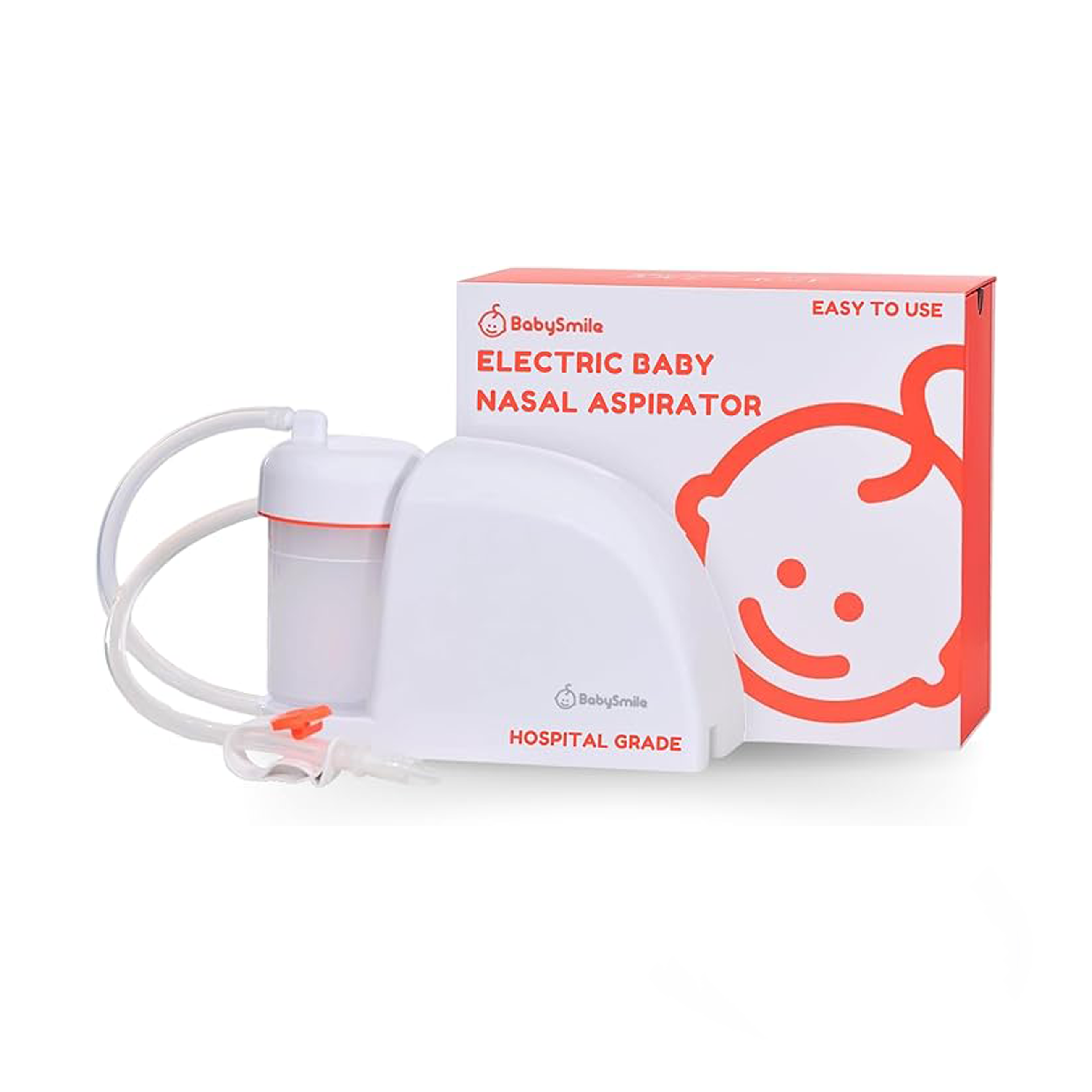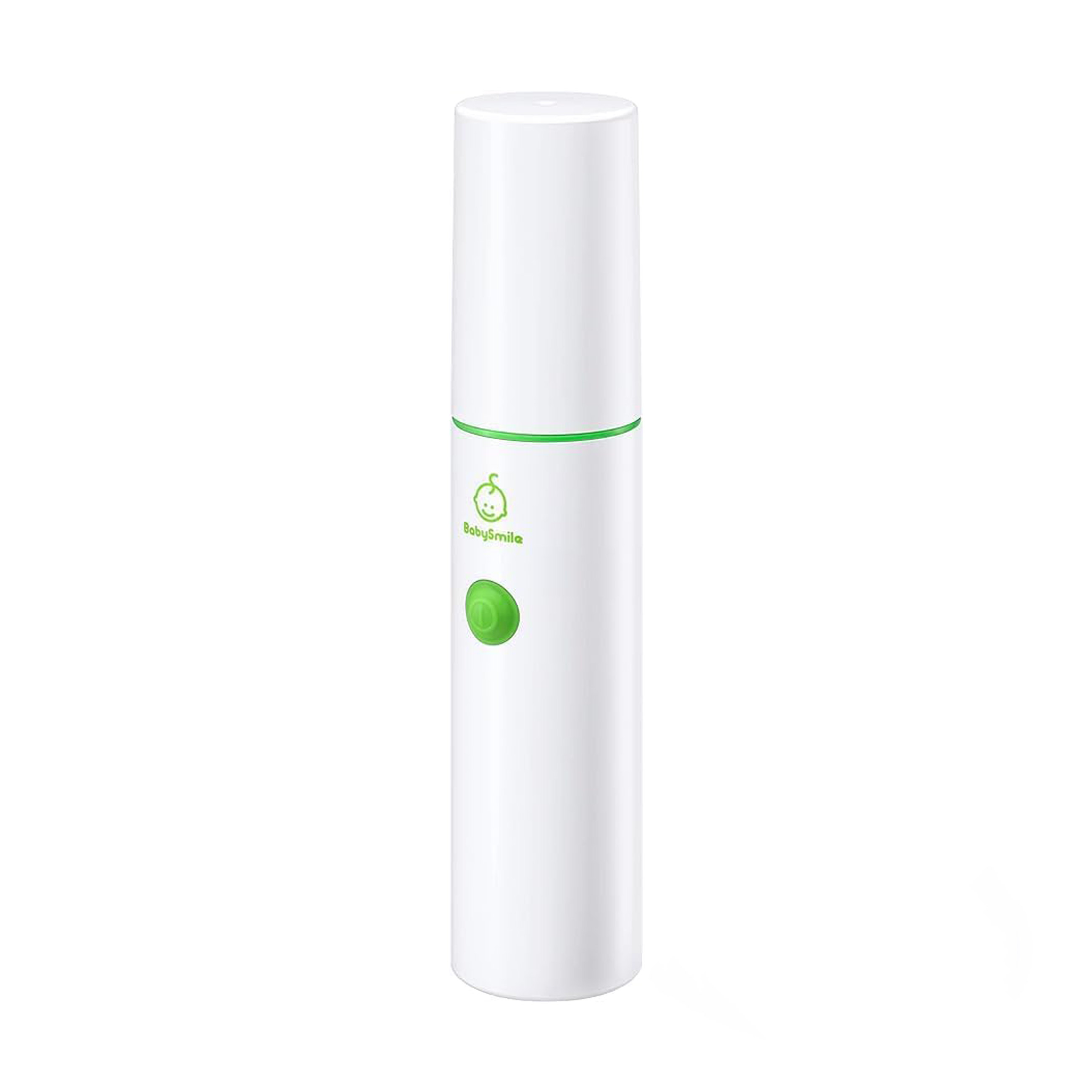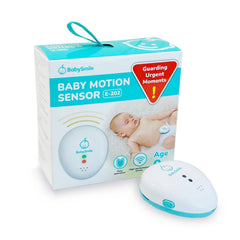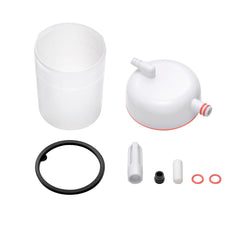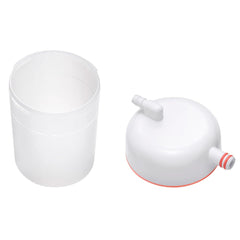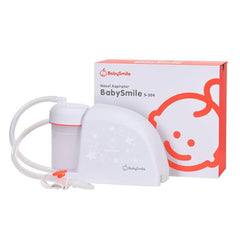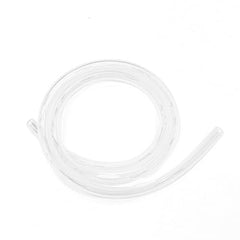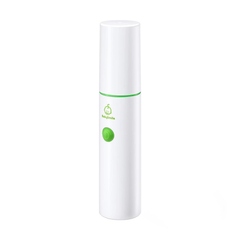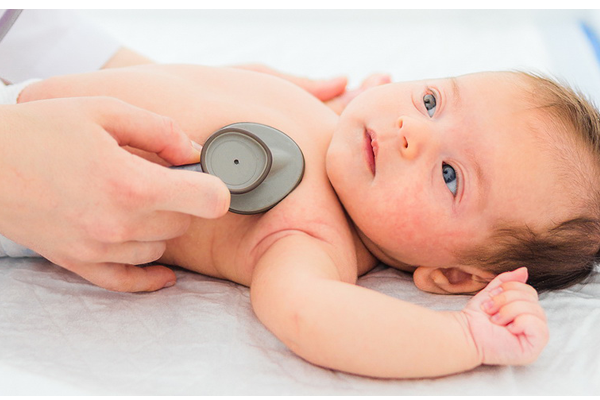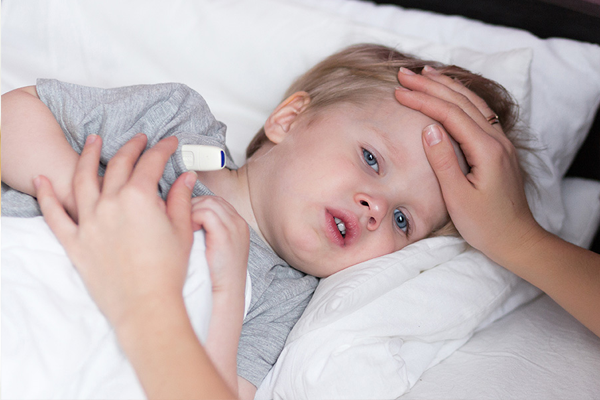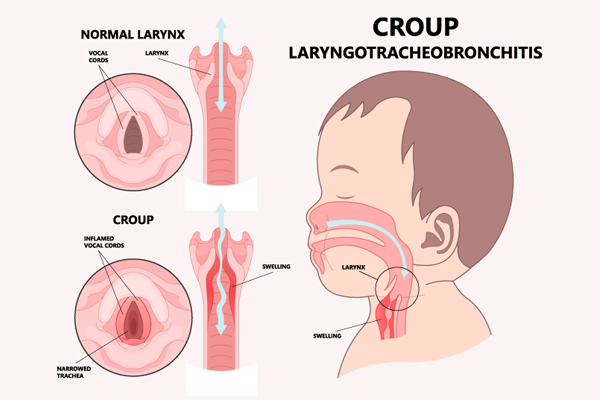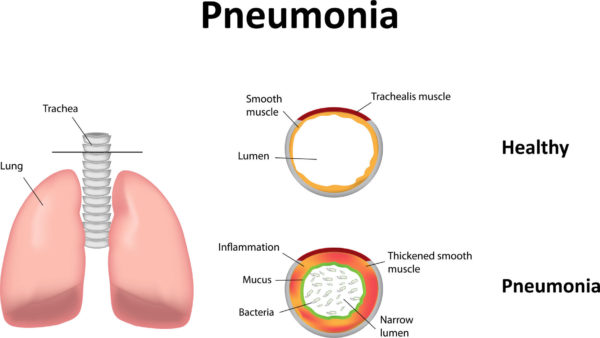
Pneumonia is the term for an infection in the lungs which are usually caused by bacteria or viruses. Pneumococcus bacteria is a common cause of lung infections, but it’s certainly not the only germ that causes it. If fact, any upper respiratory infection can lead to pneumonia. The lungs are filled with mucus and are therefore a great environment for bacteria growth. If the mucus isn’t coughed out, bacteria growth expands, setting up pockets of pus and mucus which makes breathing difficult.
What are the Symptoms of Pneumonia in Babies?
In many ways, pneumonia can mimic the symptoms of other less severe respiratory infections. However, it’s much more dangerous than a run-of-the-mill cold as pneumonia can interfere with breathing. Symptoms can be similar to an upper respiratory infection and include nasal stuffiness and a cough. Signs of pneumonia may also include:
- A moderate to severe cough that is usually “wet” sounding.
- Rapid or labored breathing from the stomach instead of the chest. You may also see excessive nostril flaring.
- Medium-to-high fever, usually in excess of 102°F.
- Constant chest pain.
- Vomiting and/or diarrhea, especially between coughing spells.
- Decreased appetite and energy level,
- Cyanosis or a blue color around the lips, nose and fingernails.Swollen earlobe.
Symptoms may differ based on where the infection is located in the lungs and the type of germ that caused the infection. For example, children who have viral pneumonia develop symptoms gradually while bacterial pneumonia usually comes on quite suddenly starting with a high fever. The duration of pneumonia will also vary depending on the type of germ that caused. Viral pneumonia tends to last much longer than bacterial pneumonia.
Should I Take My Baby to a Doctor?
If your baby is breathing rapidly and coughing, contact your pediatrician for instructions. If your baby is blue, go straight to an emergency room. Don’t wait to call a doctor as your baby is not getting the oxygen he or she needs and requires immediate medical intervention. Hospitalization may be necessary for some children,
if they:
- Need oxygen therapy,
- Have pneumonia caused by pertussis (whooping cough)
- Have a weakened immune system due to a chronic illness,
For babies who don’t require a hospital stay, doctors treat pneumonia with antibiotics and percussion therapy which helps loosen and remove mucus from the lungs. The pediatrician may order an X-ray or blood test to confirm the type of pneumonia your child has.
How Can I Treat Pneumonia at Home?
If your baby is not struggling to breath, try these at-home therapies for pneumonia.
- Use a cool-mist humidifier while baby is sleeping.
- Sit with your baby for 10 minutes in a steam-filled bathroom. Then, use a cupped hand to pound your baby’s back and chest firmly for several minutes. This treatment encourages coughing which helps move mucus from the lungs. It will work for both viral and bacterial pneumonia.
- Use acetaminophen or ibuprofen for fever.
- Don’t give your baby anything to suppress the cough as coughs help remove mucus from the lungs.
Can I Prevent Pneumonia?
You can prevent certain types of pneumonia by preventing the cause of the illness.
For example, the Prevnar vaccine keeps children from becoming infected with pneumococcus bacteria.
The pertussis vaccine prevents whooping cough with can also lead to pneumonia.
However, viruses like the one that causes the common cold can sometimes lead to pneumonia. Therefore, it’s important to keep your baby from getting sick in the first place. Practice good hand hygiene for both you and your baby, don’t let your child spend time around people who are sick and prevent your baby from sharing eating utensil, cups and pacifiers with other children.

